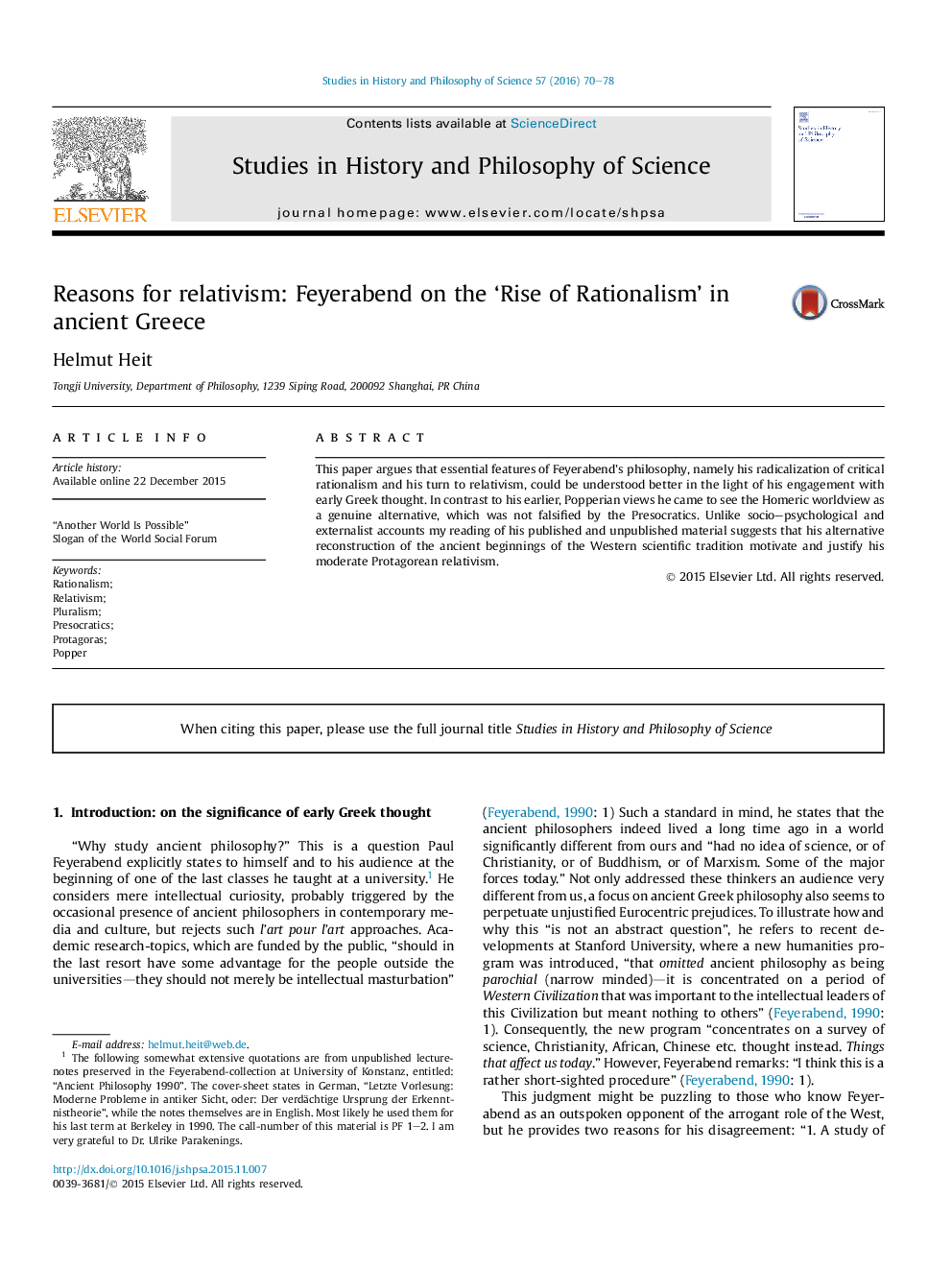| Article ID | Journal | Published Year | Pages | File Type |
|---|---|---|---|---|
| 1160266 | Studies in History and Philosophy of Science Part A | 2016 | 9 Pages |
•“Many of the problems that exist today are due to the (often violent) expansion of Western Civilization”.•Feyerabend provides an innovative reconstruction of the miraculous rise of rationalism in early Greek culture.•The incommensurability-thesis is neither essential to his account of ‘the rise of rationalism’, nor to his relativism.•The analogy between Homer and science is meant to undermine realistic epistemic attitudes.•Feyerabend defends a “reasonable” and “civilized” “Protagorean relativism”.
This paper argues that essential features of Feyerabend's philosophy, namely his radicalization of critical rationalism and his turn to relativism, could be understood better in the light of his engagement with early Greek thought. In contrast to his earlier, Popperian views he came to see the Homeric worldview as a genuine alternative, which was not falsified by the Presocratics. Unlike socio–psychological and externalist accounts my reading of his published and unpublished material suggests that his alternative reconstruction of the ancient beginnings of the Western scientific tradition motivate and justify his moderate Protagorean relativism.
